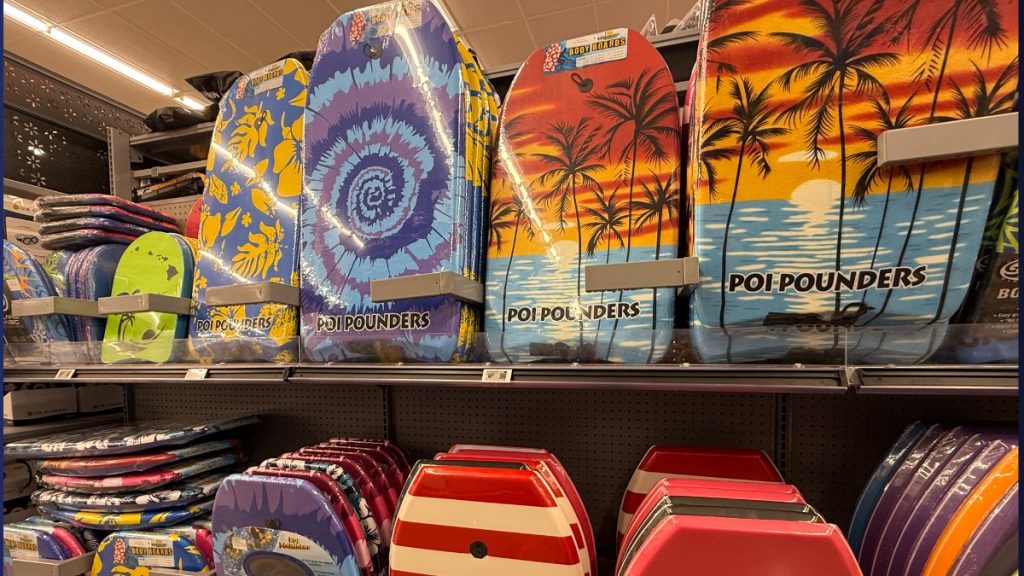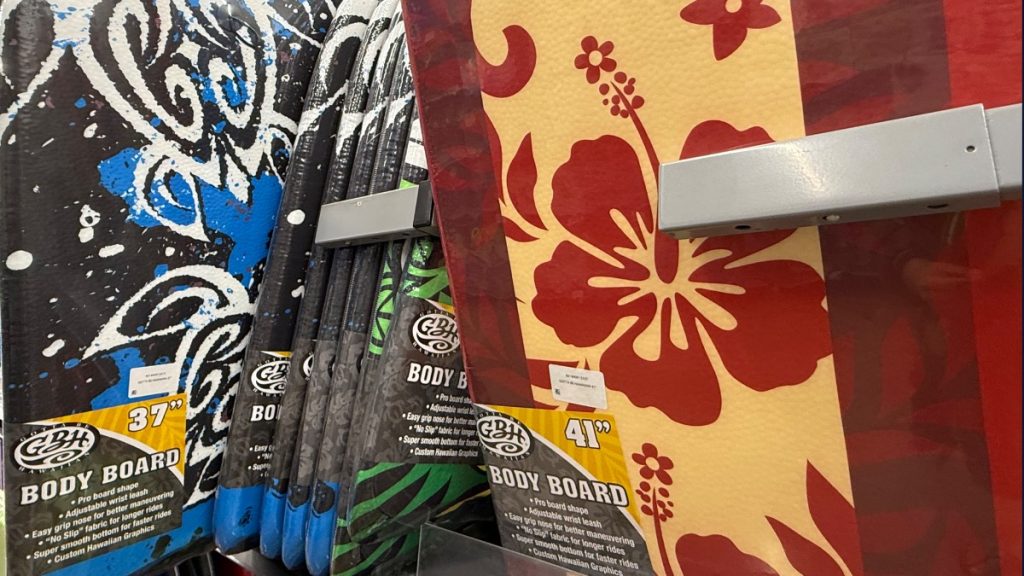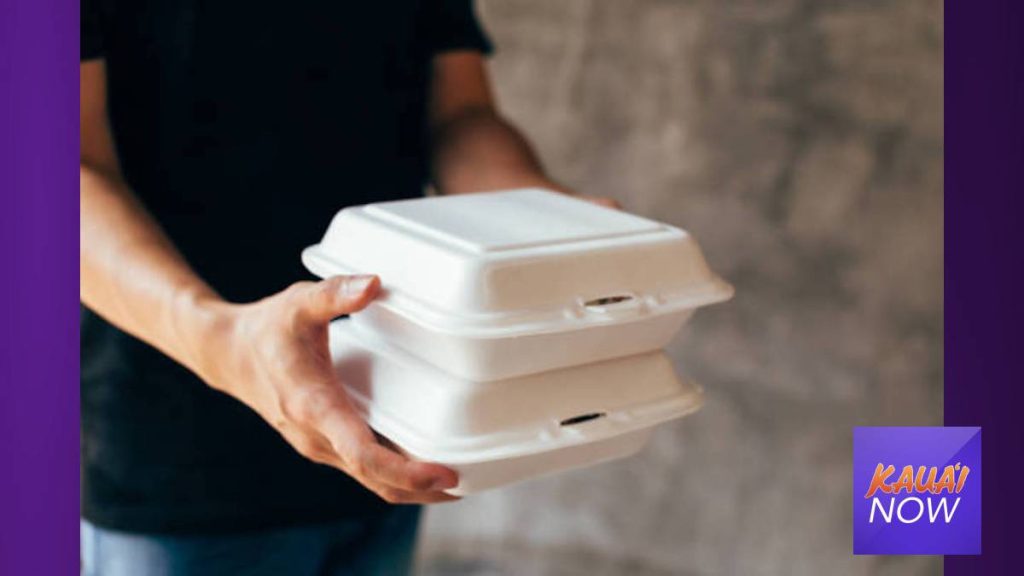Kaua’i Council advances measure targeting disposable bodyboards

The Kaua‘i County Council is considering a proposal to ban disposable bodyboards in an effort to reduce plastic waste and protect the island’s beaches and marine life.
Bill 2976, introduced in October by Councilmember Fern Holland, would make it illegal to sell, rent or distribute bodyboards made from non-durable materials, such as polystyrene foam, typically sold at Walmart. Polystyrene foam is commonly used on inexpensive bodyboards that are often left broken or discarded along shorelines.
The measure passed its first reading unanimously on Oct. 15, with a second public hearing held in the Council Chambers at the Historic County Building in Līhu‘e on Nov. 12. Nobody testified about it.
Now, the bill will go through two more hearings — a committee meeting on Nov. 19, followed by a second reading. If it passes the second reading, it goes to the mayor for his consideration. Both hearings will provide opportunities for public testimony.
“Every year, thousands of these boards are discarded by visitors, adding to our landfill burden and creating waste that never truly decomposes,” Holland said.
She said phasing out disposable styrofoam bodyboards would protect natural resources, support a shift toward durable, sustainable alternatives, and “help keep Kauaʻi’s beaches clean for our keiki, our community and future generations.”
If the bill passes, the ordinance would be added to Chapter 22 of the Kaua‘i County Code titled “Disposable Bodyboard Reduction.” Bill 2976 defines a disposable bodyboard as one designed for short-term use that easily breaks apart, creating foam and plastic fragments that contribute to marine pollution.

They are described as a buoyant rectangular object over 23 inches in length used for riding waves in a predominantly prone position. A non-disposable or ‘durable bodyboard’ is defined as a one-piece compression-molded, high-density polyethylene or polycarbonate bodyboard.
Under the new bill, businesses would be prohibited from selling, renting or distributing ‘disposable bodyboards’ within the County of Kaua’i.
Any establishment that violates the ordinance can be fined $100 for the first violation, and $200 for a second violation within the same year.
“This bill also strengthens our local economy by shifting demand toward higher-quality, durable bodyboards that can be sold, rented, repaired, and reused by local businesses instead of being thrown away after a single day at the beach,” Holland said.
“By eliminating disposable styrofoam boards, we create more opportunities for local shapers, surf shops and rental companies that already provide safer, longer lasting options,” she said.
Christine French, owner of Nukumoi Surf Co. in Poʻipū, says her family’s businesses try to recycle and buy environmentally and sustainably produced goods to reduce their plastic intake.
“I think it’s great,” French said. “We’re right here on the beach in Poʻipū, so we see the direct impact if our products are making a mess, and we don’t want that.”
French and her husband also own the restaurant next door, Brenneckes, where her son is the general manager and her daughter is the head chef.
She adds that they’ve always used environmentally friendly containers and have seen a great impact since the 2020 signing of Bill 2775, which restricts the use and sale of polyester foam food service containers at restaurants on Kauaʻi.
Holland said Bill 2775 has made a positive difference, “especially with take-out restaurants that transitioned early to better alternatives. … We are seeing less polystyrene litter in many areas, and that shows the value of strong policy.”

But Holland said that bill has not reached its full potential of a lack of consistent education, enforcement and support for businesses to comply.
“Some places continue to struggle with the transition, and without clear guidance, the impact is uneven,” Holland said. “With stronger outreach and follow-through, the Bill can deliver even greater benefits for our community and our environment.”
The Council also agrees that disposable bodyboards have a significant impact on the environment and Kaua’i’s landfill that is nearing capacity.
Holland adds that the bill is “an important trash diversion strategy at a time when Kauaʻi faces a critical landfill capacity crisis.”
The Disposable Bodyboard Reduction bill is intended to support the county’s ongoing environmental goals.
“While some of these disposable styrofoam bodyboards might seem reusable, the reality is that they break down quickly in our powerful ocean conditions and become a major source of microplastic pollution,” Holland said.
French said a durable bodyboard lasts about 10 years when properly cared for.
“We rent bodyboards, and when they’ve been outlived or they start getting a little, you know, ratty or something, we try to donate them to other organizations that can give them to kids in need,” she said.
If you’re a resident, business owner, or beachgoer wishing to provide testimony, you can attend the Kauaʻi Council Committee Meeting in person at the Council Chambers in the Historic County Building in Līhu‘e, at 8:30 a.m. on Nov. 19.



